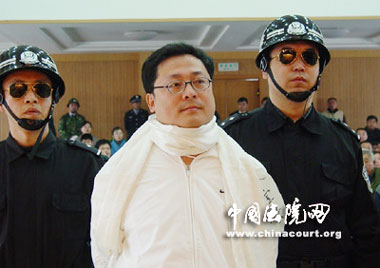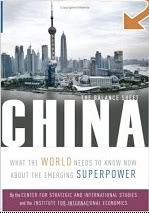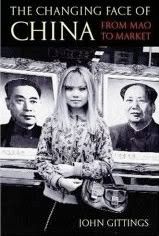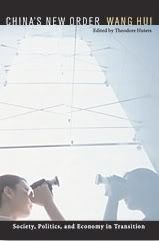British waste adds to environmental crisis across China
 Jonathan Watts in Mai
Jonathan Watts in MaiSaturday March 31, 2007
The Guardian
British high street waste is fouling streams and ditches in China despite promises of an environmental crackdown by both governments.
Mai village in Guangdong province, southern China, suffers from a Made-in-Britain eyesore: Tesco and Argos plastic bags choke the waterways, snag on tree branches and contribute to a rotting stench during floods and hot weather. There is even a green and white Help The Aged carrier bag printed with a slogan proclaiming the charity's fight against "poverty, isolation and neglect".
It is a side-effect of globalisation. Many of these products were manufactured in China, shipped to the UK for use and sent 5,000 miles back for disposal.
China exported £12.6bn worth of manufactured goods to the UK last year and received an estimated 1.9m tonnes of rubbish in return. Under EU regulations member countries are not allowed to dump garbage overseas, but are permitted to send sorted waste for recycling.
Environmentalists say this is irresponsible because much of the recycling is carried out in poorly-regulated communities, where health risks and pollution worries are a low priority.
Guangdong is scattered with scavenging centres. In Guiyu and Qingyuan small family-run businesses chop up and melt down toxic plastics and metals from discarded computers, printers and mobile phones. In Nanhai and Shunde factories deal with mounds of plastic bags and bottles. About 20% of the waste comes from overseas according to local sources.
A series of exposés in the domestic and foreign media prompted the government to crackdown on the business earlier this year. Guangdong's provincial government banned unlicensed businesses and individuals from importing plastic waste and suspended operations at factories that failed to meet environmental standards.
Last month factories in the most notorious district, the Lianjiao area of Nanhai, were shut down. But most firms simply relocated.
Two hours drive away a new recycling centre is under construction in Shijing village, which is now littered with scrapheaps. The dealers said they would no longer touch foreign waste.
In nearby Shenzhen and Shunde businessmen were still reprocessing carrier bags and other UK waste from the UK. "It can be done as long as the plastic is well enough packaged to get through customs," said the owner of one factory.
At "plastic street" in Mai village, dozens of small plastic recycling firms line the road. Most of the work is done by migrant workers who are paid about £50 a month.
Thousands of plastic carrier bags were being blown into ditches and waterways, creating an eyesore and a bad smell. Students at the local school said the stench came into their classrooms and got worse when the fetid stream floods.
The sanitary department of Shunde township said it was unaware of the mess in Mai village.
"We have a project to clean up villages in this area but we haven't got round to Mai yet," said a spokesman. The provincial government declined to comment.
Britain supports the recycling business. "It allows for a more sustainable use of world resources, but it should be carried out under strict environmental controls," said the UK consulate in Guangzhou. When told of the impact on Mai village it said individual companies should take more responsibility.
Greenpeace believes that wealthier countries should deal with their waste problems at home, rather than exporting them to developing countries, which have to pay the environmental costs.
"If we can stop the waste trade I am sure it will lead to more sustainable development around the world," said Kevin May, toxics campaign manager at Greenpeace's office in Beijing.*** Link
Read more!







